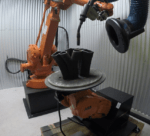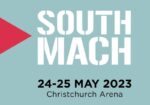Battery power plus product stewardship for a brighter future
By Dominic Salmon, 3R Group Business Development – Sustainable Solutions The transition away from fossil fuels will rely heavily on large batteries – it’s estimated that EVs and stationary energy storage batteries can enable 30% of the emissions reduction needed in the transport and energy sectors. The conversation can often steer towards electric vehicles, but large stationary batteries are just as important. Large batteries are not yet widely used in New Zealand outside of EVs and hybrid vehicles. However, the potential applications for stationery storage are huge. These range from use in homes to store excess solar power, to national power grid stabilisation, upgrading old, inefficient battery systems and even as back up for key infrastructure in the event of natural disasters such as Cyclone Gabrielle. The range of stakeholders in this area is wide, from EV and home solar system owners (and potential owners) to energy generation companies, vehicle and battery importers, recyclers and, well, just about anyone who has energy needs. Like all solutions though, thought needs to go into preventing unintended consequences. In the case of batteries, it’s ensuring they are ethically and sustainably produced and don’t become a problematic waste stream at end of life. While small markets like New Zealand, which don’t mine the minerals or manufacture large batteries, can’t have a direct impact on their production, we can ensure they are used as efficiently as possible. Importers, retailers and consumers can also use tools like the Global Battery Alliance’s battery passport to track battery health and environmental impact and create demand for ethically and sustainably manufactured batteries. Making this transition obviously isn’t straight forward but there is a significant amount of work being done, including in Aotearoa New Zealand by the Battery Industry Group (B.I.G). Batteries in the Land of the Long White Cloud […]










